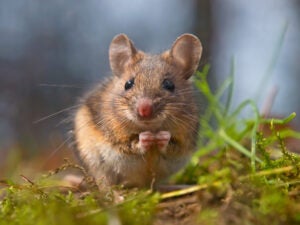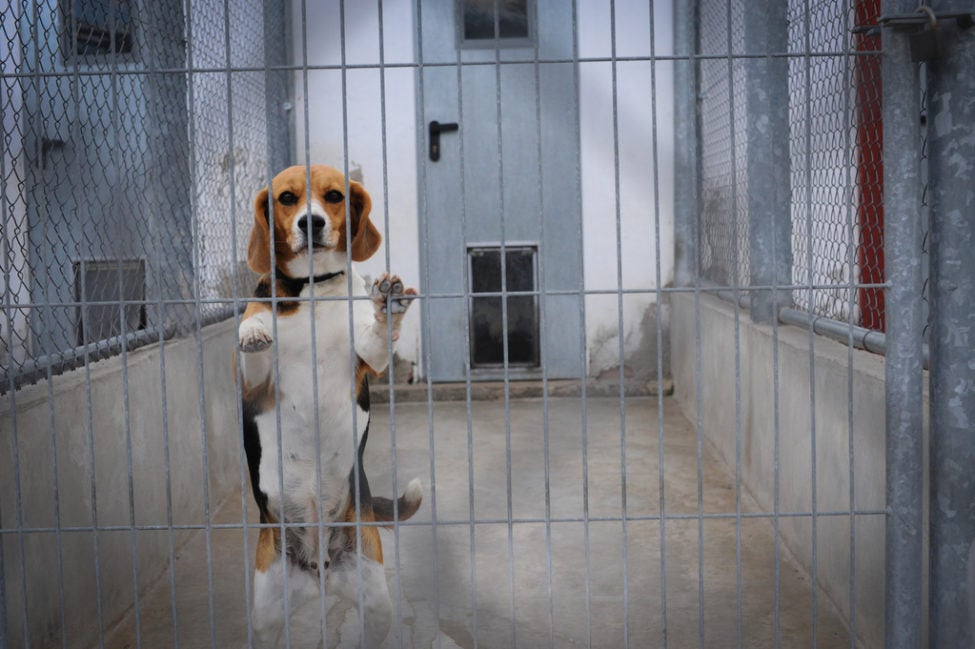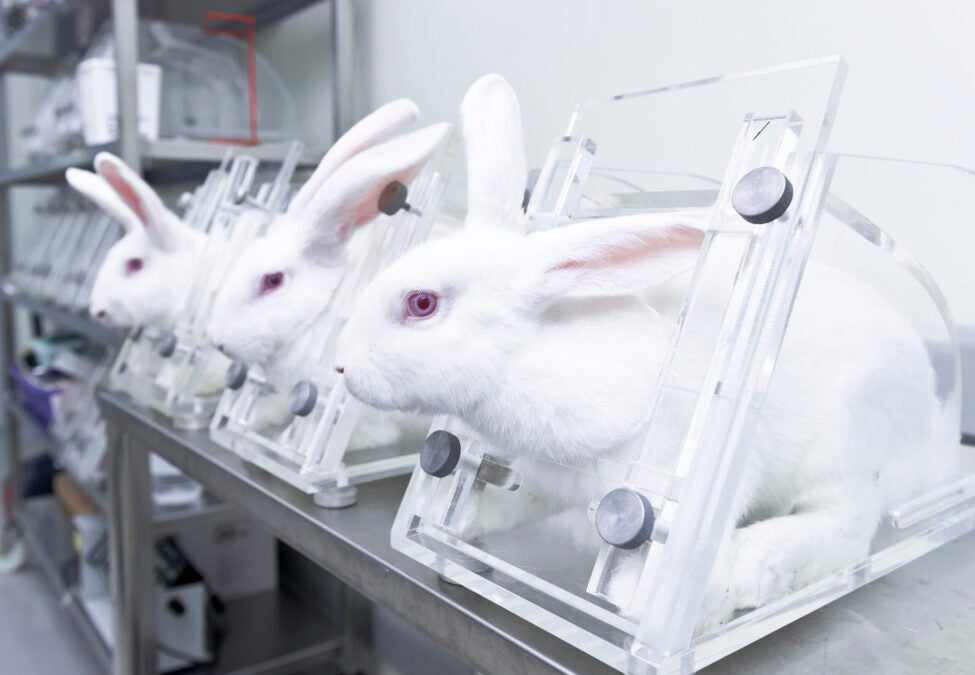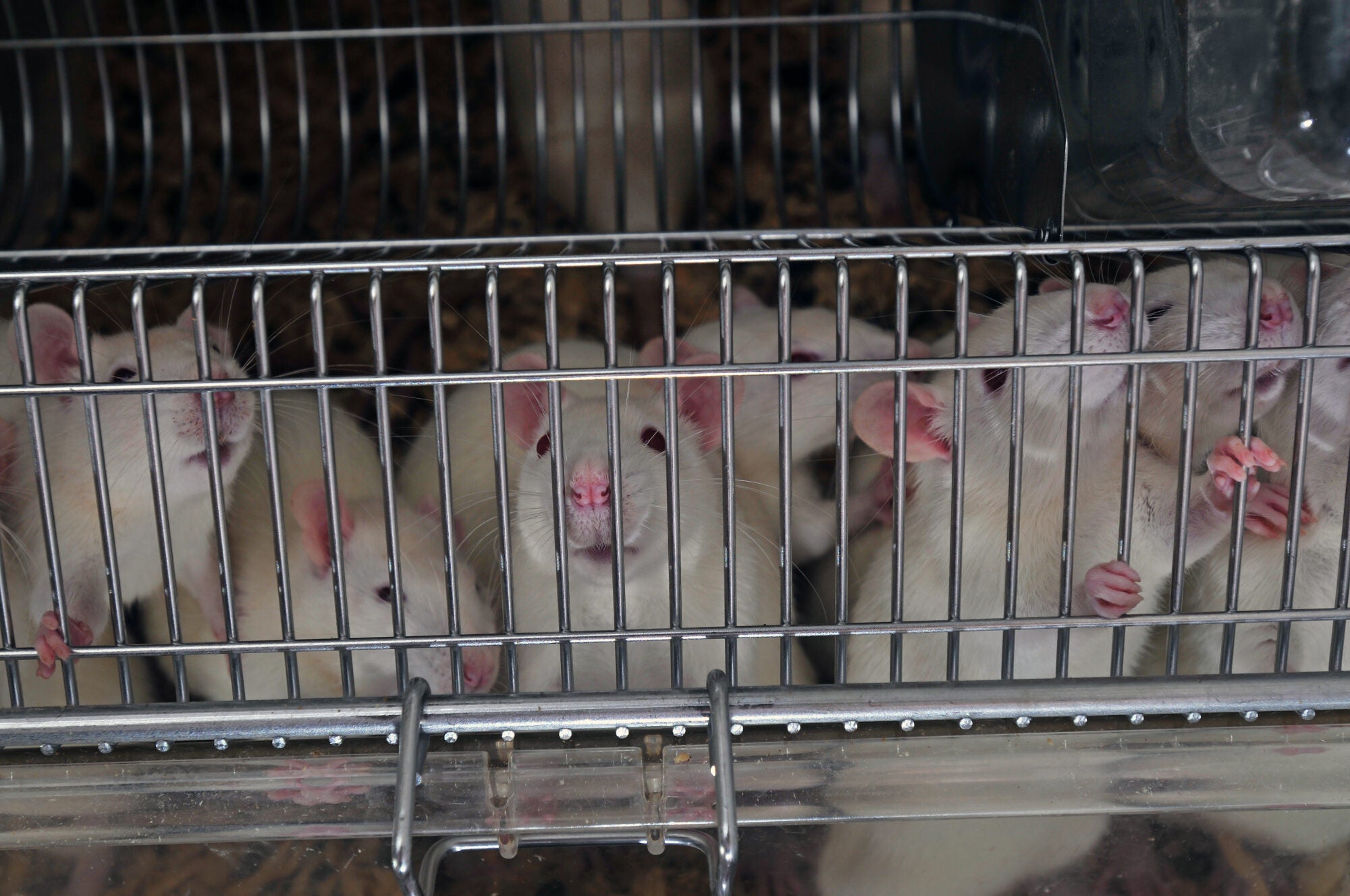
SEOUL—Humane Society International/Korea and 346 South Korean academic and industry experts delivered a letter to the chair of National Assembly’s Health and Welfare Committee, Dong Kun Shin, urging the Korean government to pass bills promoting state-of-the-art science replacing animal testing.
With an increasing consensus among scientists recognizing the importance of providing systemic support in developing and implementing human-based non-animal methods, two bills were introduced at the National Assembly; the Act on the Promotion of Development, Dissemination and Use of Alternatives to Animal Testing Methods (PAAM Act), sponsored by Assembly member In-Soon Nam in 2020, and the Act on the Vitalization of Development, Dissemination, and Use of Alternatives to Animal Testing Methods (VAAM Act), sponsored by Assembly member Jeoung Ae Han in 2022.
Through a series of political forums to discuss these bills with authorities and wider stakeholders in the past few years, a general agreement has been established that South Korea is at a pivotal moment in advancing health and safety science without relying on animal models. To achieve this, the bills stipulate collaborative work between authorities by providing a basic plan every five years. In addition, a committee consisting of experts in alternative approaches to animal testing will be established pursuant to the Act.
One of the signatories of the letter, Professor Kyungmin Lim, at Ehwa University said: “As a researcher, I work closely with new method developers and end-users. I experience time and time again the need to have a legislation in Korea to support those scientists and a relevant network for collective efforts in developing and accepting alternative approaches to animal use.”
HSI/Korea’s director of government affairs, Borami Seo said: “There is an increasing interest in using modern technologies that are more predictive of human responses than animal models. Last May, ’Korea’s innovative strategic industry committee’ selected the cell-based human mimetic method organoid as an ‘innovative strategic technology’ and promised research and development support. We are witnessing an increasing demand for these technologies, and the PAAM Act and VAAM Act are exactly the bills that are crucial to ensure these research and development efforts lead to its regulatory uptake and industrial use in the field. Now is a critical time to pass this legislation.”
ENDS
Media contact: Borami Seo bseo@hsi.org



